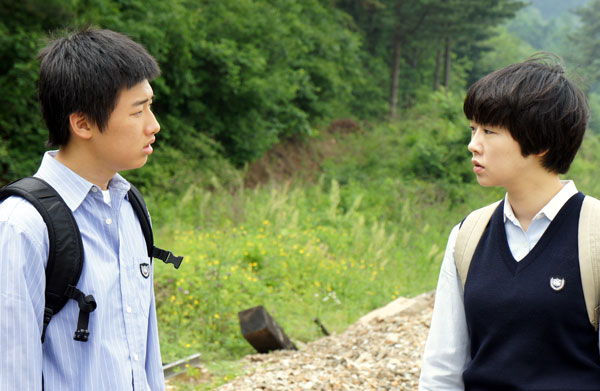
Eric Beckman founded the New York International Children’s Film Festival with his wife in 1997
NEW YORK INTERNATIONAL CHILDREN’S FILM FESTIVAL
Multiple venues throughout Manhattan
[Not for] Children Film Festival Benefit: February 28, $300 – $1,000
March 1-24, $13 (opening-night $20-$40)
All-Access VIP Pass: $400
www.gkids.com
Since its beginnings in 1997, the New York International Children’s Film Festival has been dedicated to bringing more intelligent movies to kids ages three to eighteen. Part of GKIDS (Guerrilla Kids International Distribution Syndicate), NYICFF hosts programs year-round, but its bigger-than-ever sixteenth annual festival is scheduled to take place March 1-24, spread out across such venues as Asia Society, the IFC Center, Tribeca Cinemas, FIAF, the Film Society of Lincoln Center, Scholastic, the DGA Theater, and the SVA Theatre. More than one hundred features, shorts, documentaries, and animated films will be presented from France, Belgium, Canada, India, Japan, the Netherlands, Italy, Taiwan, America, and other nations, in addition to workshops, a filmmaking camp, a prefestival not-for-children benefit (showing films that were submitted to NYICFF but are clearly not for kids), and the opening-night gala, the U.S. premiere of Benjamin Renner’s animated Ernest & Celestine, followed by a catered reception. This year’s jury, which includes such actors, writers, directors, and producers as Geena Davis, Gus Van Sant, Susan Sarandon, Jeffrey Wright, Christine Vachon, and Michael Modine, has also selected such films as Laurent Boileau and Jung Henin’s Approved for Adoption, Enzo D’Alò’s Pinocchio, the English-language premiere of Koji Masunari’s Welcome to the Space Show, and the Spanish-language version of Wreck-It Ralph called ¡Rompe Ralph! Eric Beckman, who cofounded NYICFF in 1997 with his wife, Emily Shapiro, was only too happy to discuss this year’s festival and the state of children’s films in general.
twi-ny: What prompted you to form GKIDS and NYCIFF in the first place?
Eric Beckman: NYICFF was formed to fill a void in the marketplace for exciting, meaningful, diverse, nuanced, eye-opening, thought-provoking film for young people. At the time we launched back in the late 1990s, the indie film movement was in full swing, and on any given weekend in New York City you could see maybe one hundred different films for adults — edgy indie films, French art films, romantic comedies, teen sex comedies, high-brow Oscar bait, action pictures, silent film retrospectives, and so on — literally any kind of film you could imagine was on tap for adults. But for kids there would be just one movie playing, which seemed just wrong for a city like New York. So the germinating idea for the festival was that we would bring a hugely exciting world of film to NYC every winter so that for four weeks during the festival, there would be the same kind of cinematic diversity and creativity and range of experience for kids that there is for adults.
twi-ny: How has the festival changed over the years, since its debut in 1997?
Eric Beckman: We’re much bigger (the largest in North America). NYICFF is now an Oscar qualifying festival, we have more films — and perhaps equally important we have a paid staff. We have also secured a reputation as a significant industry event on par with the prestige “adult” festivals in terms of important feature premieres and our record of introducing significant new directors to U.S. audiences and debuting future Oscar nominees. But the core concept is still exactly the same — uncompromising, excellent film for ages three to eighteen, including shorts, features, animation, live action, docs, and experimental films from six continents.
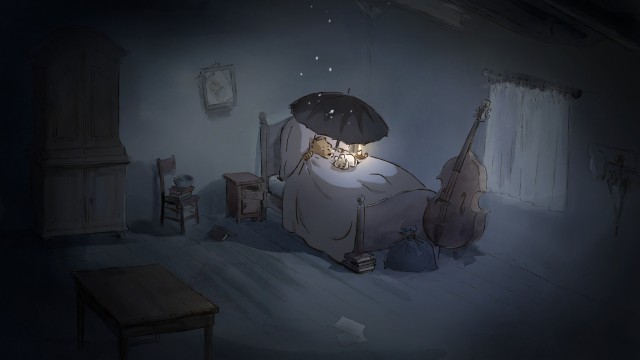
Benjamin Renner’s ERNEST & CELESTINE will open the 2013 New York International Children’s Film Festival
twi-ny: Do you think children’s films themselves have changed over the last sixteen years?
Eric Beckman: Yes and no. The Pixar animated CGI picture has supplanted Pocahontas/Lion King as the model to emulate. And more recently, with companies like Laika and others producing pictures every few years, there has been a wider variety of films out there — which has been great. But the underlying market forces that limit what is available for children have remained, and if anything have gotten stronger. Unlike films for adults, there is no independent circuit for children’s movies, so pretty much everything that is released is engineered to reach a mass audience. Amour at $4 million box office gross is a critical and financial success — but The Pirates! at $31 million is a potential write-down, even though it is a wonderful movie. So this pressure to reach mass audience to achieve $150 million domestic box office continues to affect the types of children’s films that get made in the U.S. — and severely limits the number of independent or foreign titles that can get a release. NYICFF and GKIDS are working to build that indie-for-kids circuit — and we have had some notable success at the Oscars and getting films attention and distribution, a trend we expect to continue.
twi-ny: With everyone, including children, having more access to films of all kinds over the internet, on cable, and on handheld devices, should parents worry more than ever about what their kids are watching?
Eric Beckman: This is a parenting question, so I will take off my film festival director hat for a moment. I have three children, and to be honest I am not overly worried about content. I am more concerned with limiting screen time, making room for reading, exploring art, theater, music, and other activities — and encouraging creative use of technology rather than passive consuming. Yes, there is some terrible stuff out there, but hopefully you raise your kids to make good choices rather than making the choices for them.
twi-ny: You have another prestigious jury this year. What do you look for in a jurist?
Eric Beckman: That is an often-asked question — as clearly Gus Van Sant and James Schamus do not jump to mind when you think of children’s films. But it is exactly that take we are looking for. We reach out to jurors who love and understand and are involved in creating great films. Not great children’s films, but great films period. Our jurors generally fall into one or more of three categories: actors or filmmakers (many of them parents) who we saw were coming to the festival so were already fans and supporters; innovative and provocative filmmakers who support a wider and more interesting range of film being made for young people; and renowned foreign filmmakers whose works first found U.S. audiences through the festival.
twi-ny: On February 28, there’s a specifically “not for children” benefit. What can adults expect from that?
Eric Beckman: The NY Int’l [Not for] Children’s Film Festival is a really, really fun and slightly naughty event. Every year NYICFF receives submissions that are so “not for kids” that you have to wonder what the person submitting the film was thinking. This began at the very first festival, with a film made with Barbie dolls that would definitely garner an NC-17 rating. So a few years ago, we decided to show a few of these films at a private cocktail party we were doing for board members, staff, and other friends of the festival. Everyone had so much fun we made it the theme of our fundraiser that year, and thus began the tradition.
The event takes place Feb 28, the night before Opening Night. You will want to reserve your babysitter now! It is at Tribeca Film Center and involves a screening of very inappropriate films that were submitted to the festival, plus food, cocktails, drinking games, prizes (courtside Knicks tickets, racecar driving school, all-access family passes to the festival . . .) and more things that I am not even aware of, since I am not on the benefit committee. The proceeds benefit the festival’s FilmEd program, which assures that economically disadvantaged New York City families have access to the festival’s programs and filmmaking classes. So it is a great event for a great cause.
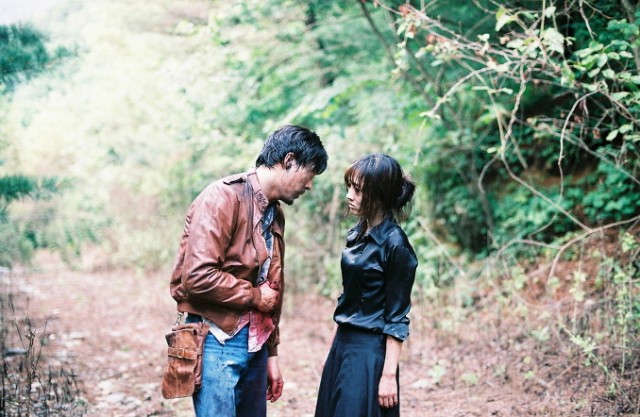
 Writer-director Ji Ha-jean offers new twists on the Korean revenge thriller in Bloody Fight in Iron-Rock Valley. Winner of the European Fantastic Film Festival Asian Award for best Asian genre film and the Fujifilm Eterna Award for best Korean independent at the 2011 Puchon International Fantastic Film Festival in South Korea, Bloody Fight stars Lee Moo-saeng as a nameless antihero who is released from prison with vengeance on his mind. He sets out on his motorcycle, carrying with him a music box with a ballerina on top of it, determined to find the cold-blooded killers known as Ghostface and Ax who work for a gangster boss in a wheelchair and his drug-addled son. As he gets closer to his prey, coming upon gambling dens, a corrupt construction business, and a quiet monastery where a prostitute is staying, bits and pieces of his past are shown in flashback, slowly explaining the motive behind his spree. Filmed for thirty-five thousand dollars in a month in Gangwon province, Bloody Fight in Iron-Rock Valley combines such spaghetti Westerns as Once Upon a Time in the West and High Plains Drifter with such violent revenge films as Old Boy and Death Wish. Ji uses a wide range of weaponry throughout, including a nail gun, a blowtorch, and a unique little ax, in scenes that often involve torture as well as some head scratching, as Ji does not fill up the various plot holes and several inexplicable elements. Still, it’s a compelling revenge thriller that doesn’t try to be anything more than what it is. Bloody Fight in Iron-Rock Valley is screening for free March 26 at Tribeca Cinemas as part of the Korean Cultural Service Korean Movie Night series “Micro-Budget Genre Invasion!,” which continues April 16 with Oh Young-doo’s Invasion of Alien Bikini and April 30 with the four-part omnibus The Neighbor Zombie.
Writer-director Ji Ha-jean offers new twists on the Korean revenge thriller in Bloody Fight in Iron-Rock Valley. Winner of the European Fantastic Film Festival Asian Award for best Asian genre film and the Fujifilm Eterna Award for best Korean independent at the 2011 Puchon International Fantastic Film Festival in South Korea, Bloody Fight stars Lee Moo-saeng as a nameless antihero who is released from prison with vengeance on his mind. He sets out on his motorcycle, carrying with him a music box with a ballerina on top of it, determined to find the cold-blooded killers known as Ghostface and Ax who work for a gangster boss in a wheelchair and his drug-addled son. As he gets closer to his prey, coming upon gambling dens, a corrupt construction business, and a quiet monastery where a prostitute is staying, bits and pieces of his past are shown in flashback, slowly explaining the motive behind his spree. Filmed for thirty-five thousand dollars in a month in Gangwon province, Bloody Fight in Iron-Rock Valley combines such spaghetti Westerns as Once Upon a Time in the West and High Plains Drifter with such violent revenge films as Old Boy and Death Wish. Ji uses a wide range of weaponry throughout, including a nail gun, a blowtorch, and a unique little ax, in scenes that often involve torture as well as some head scratching, as Ji does not fill up the various plot holes and several inexplicable elements. Still, it’s a compelling revenge thriller that doesn’t try to be anything more than what it is. Bloody Fight in Iron-Rock Valley is screening for free March 26 at Tribeca Cinemas as part of the Korean Cultural Service Korean Movie Night series “Micro-Budget Genre Invasion!,” which continues April 16 with Oh Young-doo’s Invasion of Alien Bikini and April 30 with the four-part omnibus The Neighbor Zombie.

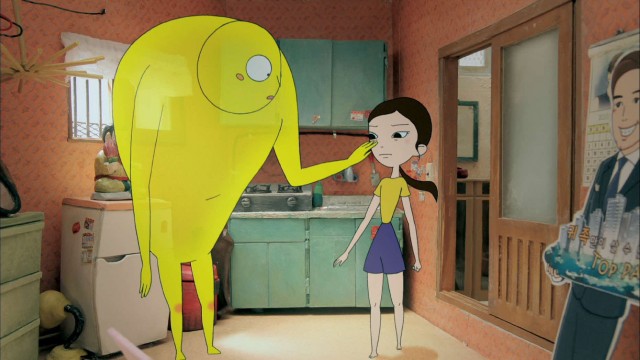
 The Korean Academy of Film Arts takes on urban renewal in their annual collaboration, The House. Ban Joo-young, Lee Hyun-jin, Lee Jae-ho-I, Park Eun-young-I, and Park Mi-sun team up to tell the story of a young woman, Ga-young (voiced by Kim Kkobbi), struggling to get by in modern-day Korea. With no money and no real job, she moves into a ramshackle apartment with Hee-ju (Ha Jae-sook) while dreaming of winning the lottery and being able to move into a nearby wealthy complex. But when she finds a magic bracelet, she suddenly can see the spirits of the old houses, who would die if their buildings were torn down by the city, changing Ga-yong’s attitude about just what home means. The filmmakers combine CGI and real photographs with the drawing style of Yoshitoro Nara and the look and sensibility of Hayao Miyazaki’s classic Spirited Away in The House, an admirable if ultimately unsatisfying story that has too many holes and lacks nuance. It ends up feeling overly derivative and unsentimentally political, even if it is based on some real circumstances, as evidenced by the pictures that accompany the closing credits. Also featuring the voices of Choi Jeong-ho, Choi Ha-na, Kim Hee-jin, and Oh In-sil as multiple characters, The House is screening for free February 12 at 7:00 at Tribeca Cinemas as part of the latest biweekly Korean Movie Night series, “Drawn into Film: Korean Animation!,” which continues February 26 with Yuen Sang-ho’s debut, The Window.
The Korean Academy of Film Arts takes on urban renewal in their annual collaboration, The House. Ban Joo-young, Lee Hyun-jin, Lee Jae-ho-I, Park Eun-young-I, and Park Mi-sun team up to tell the story of a young woman, Ga-young (voiced by Kim Kkobbi), struggling to get by in modern-day Korea. With no money and no real job, she moves into a ramshackle apartment with Hee-ju (Ha Jae-sook) while dreaming of winning the lottery and being able to move into a nearby wealthy complex. But when she finds a magic bracelet, she suddenly can see the spirits of the old houses, who would die if their buildings were torn down by the city, changing Ga-yong’s attitude about just what home means. The filmmakers combine CGI and real photographs with the drawing style of Yoshitoro Nara and the look and sensibility of Hayao Miyazaki’s classic Spirited Away in The House, an admirable if ultimately unsatisfying story that has too many holes and lacks nuance. It ends up feeling overly derivative and unsentimentally political, even if it is based on some real circumstances, as evidenced by the pictures that accompany the closing credits. Also featuring the voices of Choi Jeong-ho, Choi Ha-na, Kim Hee-jin, and Oh In-sil as multiple characters, The House is screening for free February 12 at 7:00 at Tribeca Cinemas as part of the latest biweekly Korean Movie Night series, “Drawn into Film: Korean Animation!,” which continues February 26 with Yuen Sang-ho’s debut, The Window.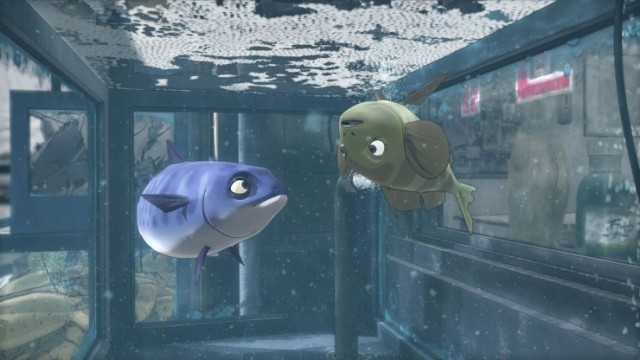

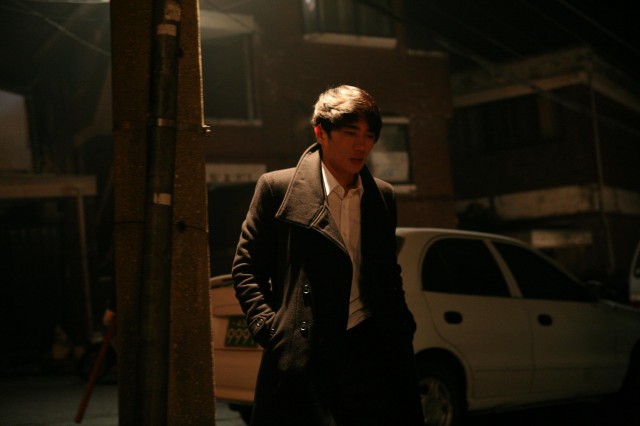
 After his mother’s (Kil Hae-yeon) get-rich-quick scheme doesn’t quite work out as planned, she disappears, leaving her laconic son, Kwon Youn-ho (Um Tae-goo), to continually fight off her ever-more-crazed business partner, Seo-hee (Park Se-jin), a divorced mother desperate to get back the money she claims she is owed. Meanwhile, Youn-ho is trying to make a life for himself and his fiancée, Se-kyung (Yoon Che-yong), but her mother doesn’t approve of his job in reconstruction — he convinces people to leave their homes with small payments so that buildings can be knocked down and fancier residences put up in their place. But neither Youn-ho nor Seo-hee is evil; both have been cast in difficult situations that lead to extreme measures that they regret as they try to put their lives back together. Kim Joon-hyun’s first feature film is a patiently paced drama that subtly examines how the global financial crisis affects families in both large and small ways. Everyone in the film is seeking to maintain or renew a relationship with a loved one, be it a parent, a child, a sibling, or a lover, but money complicates their situations. Um is excellent as Youn-ho, a young man seemingly disinterested in his own existence, letting life just happen to him, a fine counterpart to Park’s Seo-hee, a woman willing to do just about anything to prevent her life from getting completely away from her. Choked is screening for free October 9 at 7:00 at Tribeca Cinemas as part of the Korean Cultural Service film series “Gems of Korean Cinema,” which looks at recent independent works from South Korea.
After his mother’s (Kil Hae-yeon) get-rich-quick scheme doesn’t quite work out as planned, she disappears, leaving her laconic son, Kwon Youn-ho (Um Tae-goo), to continually fight off her ever-more-crazed business partner, Seo-hee (Park Se-jin), a divorced mother desperate to get back the money she claims she is owed. Meanwhile, Youn-ho is trying to make a life for himself and his fiancée, Se-kyung (Yoon Che-yong), but her mother doesn’t approve of his job in reconstruction — he convinces people to leave their homes with small payments so that buildings can be knocked down and fancier residences put up in their place. But neither Youn-ho nor Seo-hee is evil; both have been cast in difficult situations that lead to extreme measures that they regret as they try to put their lives back together. Kim Joon-hyun’s first feature film is a patiently paced drama that subtly examines how the global financial crisis affects families in both large and small ways. Everyone in the film is seeking to maintain or renew a relationship with a loved one, be it a parent, a child, a sibling, or a lover, but money complicates their situations. Um is excellent as Youn-ho, a young man seemingly disinterested in his own existence, letting life just happen to him, a fine counterpart to Park’s Seo-hee, a woman willing to do just about anything to prevent her life from getting completely away from her. Choked is screening for free October 9 at 7:00 at Tribeca Cinemas as part of the Korean Cultural Service film series “Gems of Korean Cinema,” which looks at recent independent works from South Korea.